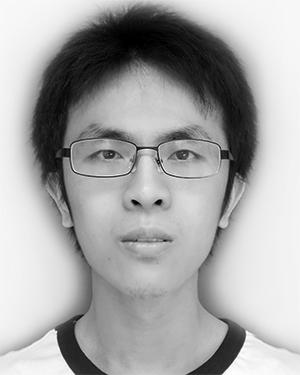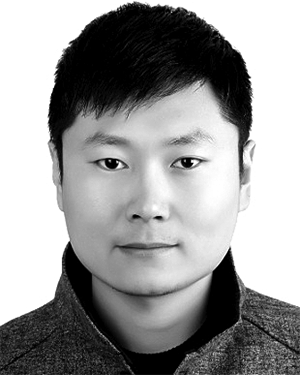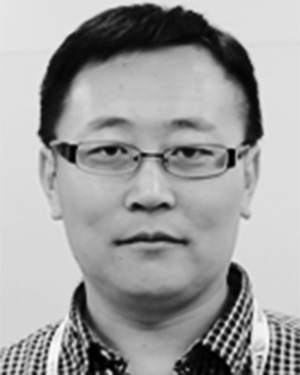Abstract:
As a promising way for analyzing data, sparse modeling has achieved great success throughout science and engineering. It is well known that the sparsity/low-rank of a vec...Show MoreMetadata
Abstract:
As a promising way for analyzing data, sparse modeling has achieved great success throughout science and engineering. It is well known that the sparsity/low-rank of a vector/matrix can be rationally measured by nonzero-entries-number (l0 norm)/nonzerosingular-values-number (rank), respectively. However, data from real applications are often generated by the interaction of multiple factors, which obviously cannot be sufficiently represented by a vector/matrix, while a high order tensor is expected to provide more faithful representation to deliver the intrinsic structure underlying such data ensembles. Unlike the vector/matrix case, constructing a rational high order sparsity measure for tensor is a relatively harder task. To this aim, in this paper we propose a measure for tensor sparsity, called Kronecker-basis-representation based tensor sparsity measure (KBR briefly), which encodes both sparsity insights delivered by Tucker and CANDECOMP/PARAFAC (CP) low-rank decompositions for a general tensor. Then we study the KBR regularization minimization (KBRM) problem, and design an effective ADMM algorithm for solving it, where each involved parameter can be updated with closed-form equations. Such an efficient solver makes it possible to extend KBR to various tasks like tensor completion and tensor robust principal component analysis. A series of experiments, including multispectral image (MSI) denoising, MSI completion and background subtraction, substantiate the superiority of the proposed methods beyond state-of-the-arts.
Published in: IEEE Transactions on Pattern Analysis and Machine Intelligence ( Volume: 40, Issue: 8, 01 August 2018)
Funding Agency:

School of Mathematics and Statistics and Ministry of Education Key Lab of Intelligent Networks and Network Security, Xi’an Jiaotong University, Shaanxi, P.R. China
Qi Xie received the BSc degree from Xi’an Jiaotong University,
Xi’an, China, in 2013, where he is currently working toward the PhD degree. His current research interests
include low-rank matrix factorization, tensor recovery, and sparse machine learning methods.
Qi Xie received the BSc degree from Xi’an Jiaotong University,
Xi’an, China, in 2013, where he is currently working toward the PhD degree. His current research interests
include low-rank matrix factorization, tensor recovery, and sparse machine learning methods.View more

School of Mathematics and Statistics and Ministry of Education Key Lab of Intelligent Networks and Network Security, Xi’an Jiaotong University, Shaanxi, P.R. China
Qian Zhao received the BSc and PhD degrees from Xi’an Jiaotong
University, Xi’an, China, in 2009 and 2015, respectively. He was a visiting scholar with Carnegie Mellon
University, Pittsburgh, Pennsylvania, from 2013 to 2014. He is currently a lecturer in the School of Mathematics and
Statistics, Xi’an Jiaotong University. His current research interests include low-rank matrix/tensor analysis,
Bayesian modeling and sel...Show More
Qian Zhao received the BSc and PhD degrees from Xi’an Jiaotong
University, Xi’an, China, in 2009 and 2015, respectively. He was a visiting scholar with Carnegie Mellon
University, Pittsburgh, Pennsylvania, from 2013 to 2014. He is currently a lecturer in the School of Mathematics and
Statistics, Xi’an Jiaotong University. His current research interests include low-rank matrix/tensor analysis,
Bayesian modeling and sel...View more

School of Mathematics and Statistics and Ministry of Education Key Lab of Intelligent Networks and Network Security, Xi’an Jiaotong University, Shaanxi, P.R. China
Deyu Meng received the BSc, MSc, and PhD degrees from Xi’an
Jiaotong University, Xi’an, China, in 2001, 2004, and 2008, respectively. He was a visiting scholar with
Carnegie Mellon University, Pittsburgh, Pennsylvania, from 2012 to 2014. He is currently a professor in the Institute
for Information and System Sciences, Xi’an Jiaotong University. His current research interests include
self-paced learning, noise modeling...Show More
Deyu Meng received the BSc, MSc, and PhD degrees from Xi’an
Jiaotong University, Xi’an, China, in 2001, 2004, and 2008, respectively. He was a visiting scholar with
Carnegie Mellon University, Pittsburgh, Pennsylvania, from 2012 to 2014. He is currently a professor in the Institute
for Information and System Sciences, Xi’an Jiaotong University. His current research interests include
self-paced learning, noise modeling...View more

School of Mathematics and Statistics and Ministry of Education Key Lab of Intelligent Networks and Network Security, Xi’an Jiaotong University, Shaanxi, P.R. China
Zongben Xu received the PhD degree in mathematics from Xi’an
Jiaotong University, Xi’an, China, in 1987. He currently serves as the Academician of the Chinese Academy of
Sciences, the chief scientist of the National Basic Research Program of China (973 Project), and the director of the
Institute for Information and System Sciences, Xi’an Jiaotong University. His current research interests include
nonlinear functional ...Show More
Zongben Xu received the PhD degree in mathematics from Xi’an
Jiaotong University, Xi’an, China, in 1987. He currently serves as the Academician of the Chinese Academy of
Sciences, the chief scientist of the National Basic Research Program of China (973 Project), and the director of the
Institute for Information and System Sciences, Xi’an Jiaotong University. His current research interests include
nonlinear functional ...View more

School of Mathematics and Statistics and Ministry of Education Key Lab of Intelligent Networks and Network Security, Xi’an Jiaotong University, Shaanxi, P.R. China
Qi Xie received the BSc degree from Xi’an Jiaotong University,
Xi’an, China, in 2013, where he is currently working toward the PhD degree. His current research interests
include low-rank matrix factorization, tensor recovery, and sparse machine learning methods.
Qi Xie received the BSc degree from Xi’an Jiaotong University,
Xi’an, China, in 2013, where he is currently working toward the PhD degree. His current research interests
include low-rank matrix factorization, tensor recovery, and sparse machine learning methods.View more

School of Mathematics and Statistics and Ministry of Education Key Lab of Intelligent Networks and Network Security, Xi’an Jiaotong University, Shaanxi, P.R. China
Qian Zhao received the BSc and PhD degrees from Xi’an Jiaotong
University, Xi’an, China, in 2009 and 2015, respectively. He was a visiting scholar with Carnegie Mellon
University, Pittsburgh, Pennsylvania, from 2013 to 2014. He is currently a lecturer in the School of Mathematics and
Statistics, Xi’an Jiaotong University. His current research interests include low-rank matrix/tensor analysis,
Bayesian modeling and self-paced learning.
Qian Zhao received the BSc and PhD degrees from Xi’an Jiaotong
University, Xi’an, China, in 2009 and 2015, respectively. He was a visiting scholar with Carnegie Mellon
University, Pittsburgh, Pennsylvania, from 2013 to 2014. He is currently a lecturer in the School of Mathematics and
Statistics, Xi’an Jiaotong University. His current research interests include low-rank matrix/tensor analysis,
Bayesian modeling and self-paced learning.View more

School of Mathematics and Statistics and Ministry of Education Key Lab of Intelligent Networks and Network Security, Xi’an Jiaotong University, Shaanxi, P.R. China
Deyu Meng received the BSc, MSc, and PhD degrees from Xi’an
Jiaotong University, Xi’an, China, in 2001, 2004, and 2008, respectively. He was a visiting scholar with
Carnegie Mellon University, Pittsburgh, Pennsylvania, from 2012 to 2014. He is currently a professor in the Institute
for Information and System Sciences, Xi’an Jiaotong University. His current research interests include
self-paced learning, noise modeling, and tensor sparsity.
Deyu Meng received the BSc, MSc, and PhD degrees from Xi’an
Jiaotong University, Xi’an, China, in 2001, 2004, and 2008, respectively. He was a visiting scholar with
Carnegie Mellon University, Pittsburgh, Pennsylvania, from 2012 to 2014. He is currently a professor in the Institute
for Information and System Sciences, Xi’an Jiaotong University. His current research interests include
self-paced learning, noise modeling, and tensor sparsity.View more

School of Mathematics and Statistics and Ministry of Education Key Lab of Intelligent Networks and Network Security, Xi’an Jiaotong University, Shaanxi, P.R. China
Zongben Xu received the PhD degree in mathematics from Xi’an
Jiaotong University, Xi’an, China, in 1987. He currently serves as the Academician of the Chinese Academy of
Sciences, the chief scientist of the National Basic Research Program of China (973 Project), and the director of the
Institute for Information and System Sciences, Xi’an Jiaotong University. His current research interests include
nonlinear functional analysis and intelligent information processing. He was a recipient of the National Natural
Science Award of China in 2007 and the winner of the CSIAM Su Buchin Applied Mathematics Prize in 2008. He delivered a
talk at the International Congress of Mathematicians in 2010.
Zongben Xu received the PhD degree in mathematics from Xi’an
Jiaotong University, Xi’an, China, in 1987. He currently serves as the Academician of the Chinese Academy of
Sciences, the chief scientist of the National Basic Research Program of China (973 Project), and the director of the
Institute for Information and System Sciences, Xi’an Jiaotong University. His current research interests include
nonlinear functional analysis and intelligent information processing. He was a recipient of the National Natural
Science Award of China in 2007 and the winner of the CSIAM Su Buchin Applied Mathematics Prize in 2008. He delivered a
talk at the International Congress of Mathematicians in 2010.View more


